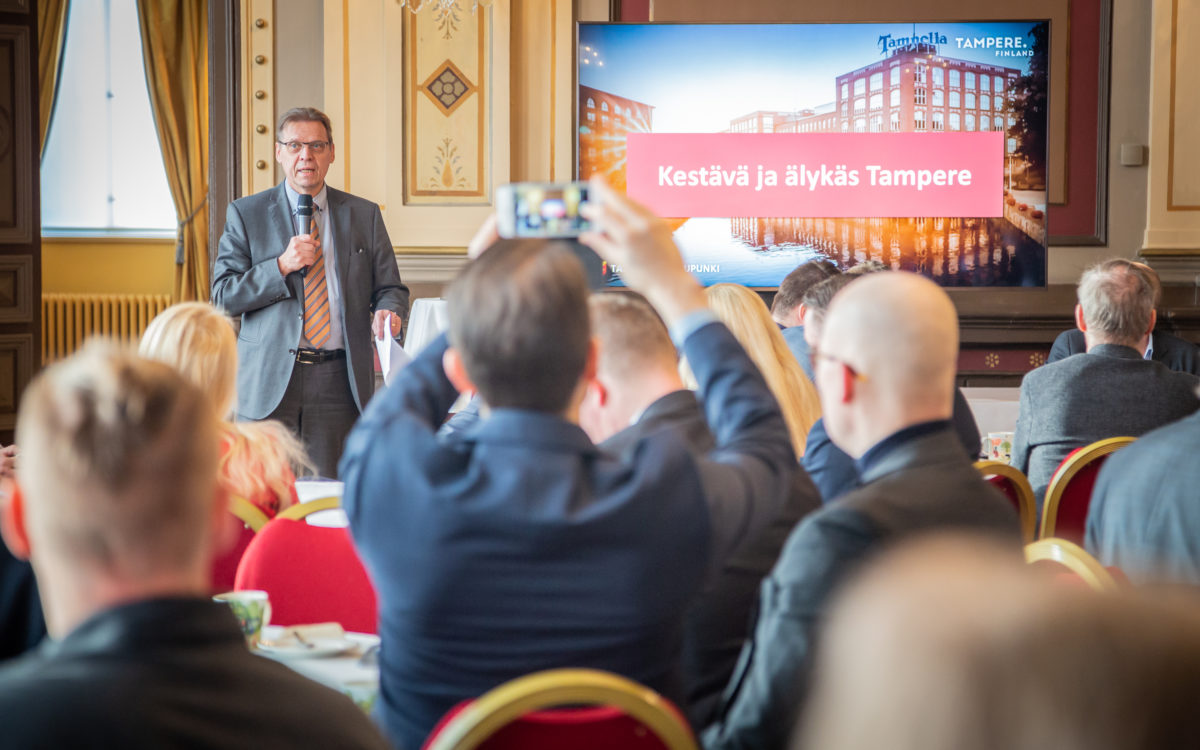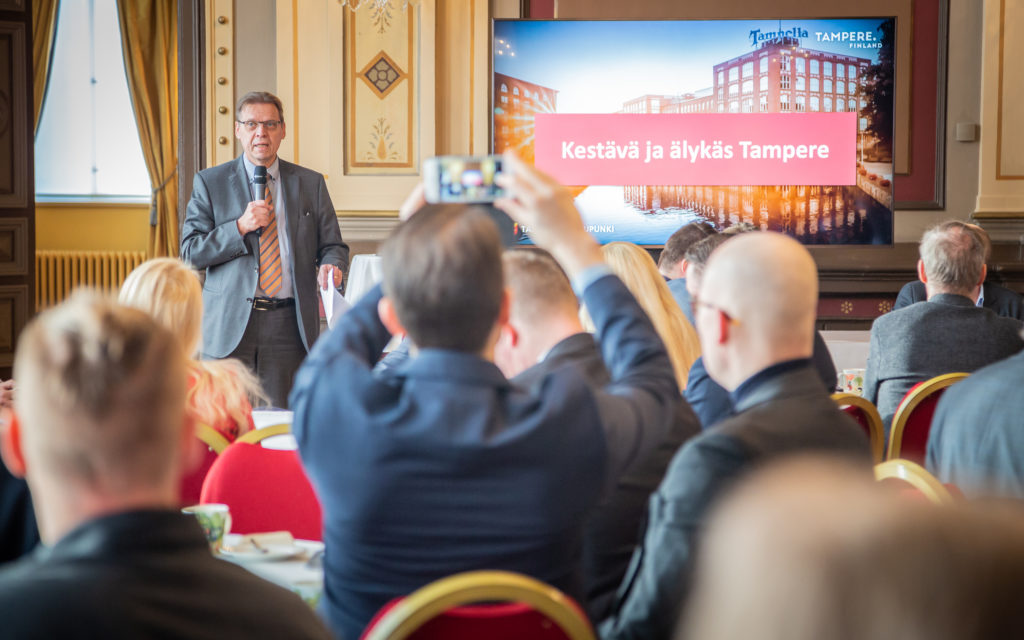Smart city developers discuss business, data utilisation, sustainability
11.4.2019

Smart Tampere programme is aiming to increase the involvement of companies and research institutes in smart city digitalisation, business ecosystem building and sustainable development. The smart city developers had a meeting in April to discuss the programme and its implementation.
Launched in summer 2018, the Sustainable Tampere 2030 programme is a part of Smart Tampere and brings together all the sustainability-related operations of the City and its partners. The collaboration of companies and research institutes is needed for the City to the reach its objective: carbon neutral Tampere in 2030.
Participating in Smart Tampere projects, pilots, experiments and events allows companies to work for climate goals while advancing their own business. For example, ”From oil to renewables” campaign is looking for companies to offer turnkey solutions for house owners willing to replace oil heating with renewable energy.
This opens business opportunities and, at the same time, helps reduce emissions. No matter what kind of challenge we are facing, we’ll need companies and their solutions, says Program Manager Pauli Välimäki of the Sustainable Tampere 2030.
Other measures for companies to work towards the carbon neutrality objective were listed in the meeting: an enterprise can assess its climate impacts – with the help of for example Ekokompassi, an environmental management system – and build a carbon neutral company 2030 roadmap.
Special meetings were discussed: it would be useful for companies to meet, share and compare their sustainability programmes and measures. Also, an idea of a Carbon Neutral Tampere 2030 logo that companies committed to the objectives could use.
This year every Tampere City unit will begin to create a carbon neutrality roadmap for its own field of operations. That makes the objectives clear and easy to communicate, for example when discussing procurements.
Making use of data
Sustainable development and data utilisation have much in common. For example, data about the energy consumption of buildings is crucial for reducing greenhouse gas emissions.
It was pointed out in the meeting that there is plenty of building data, but making use of the data is often challenging, and the City needs new solutions from companies. The City is developing an open IoT platform where data from different systems will be gathered to be utilised.
Open data is an important theme is Smart Tampere. The public data of the City will be more and more open and APIs made available. Furthermore, all the companies in the Tampere Region are welcome to join the Smart Tampere collaboration and smart city ecosystems.
Enhancing local expertise and collaboration
Smart Tampere promotes business renewal and growth by advancing the development of business ecosystems. The urban environment provides many companies a platform for testing their products and services with real users. The Smart Tampere agile experiments show how combining the City’s needs and companies’ solutions benefits both parties.
Business ecosystems produce pioneering solutions and strengthen the local expertise that is important for the private sector and for the City as well. The aim is to digitalise the services of the City of Tampere by 2025, and for that the best new technologies are essential. Companies and agile experimenting help the City to acquire those technologies, to utilise data efficiently and to make services more reliable and secure.
Elias, the language teaching robot, and Osaamisbotti, the AI-boosted coaching platform, are some of the results of the collaboration. They are already making life smoother for the citizens – while building up an international reputation.
The article is based on materials of the Smart city developers’ meeting (April 4th 2019): presentations and group discussion notes.